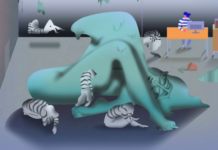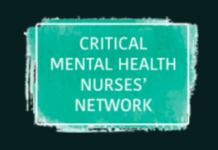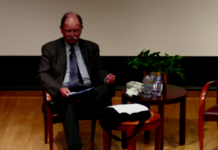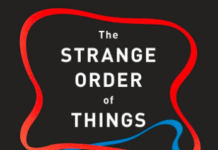Mindfulness Therapy May Be More Effective Without Antidepressants
While an estimated 74-percent of patients diagnosed with major depression receive a prescription for an antidepressant, new research reveals that mindfulness-based cognitive therapy (MBCT)...
Johann Hari Continues to Speak Out
Johann Hari, British journalist and author of the new book Lost Connections: Uncovering the Real Causes of Depression—and the Unexpected Solutions, continues to speak out...
Homogenization of Psychotherapy and Counseling
In this piece for Transcend Media Service, Dr. Anthony J. Marsella critiques the standardization of mental health treatment, arguing that it overlooks cultural and individual...
Group Plans Protest Against the World Congress of Psychiatry
The International Association Against Psychiatric Assault (IAAPA) plans to protest against the World Congress of Psychiatry this October. The IAAPA considers it a "provocation"...
A Nurse’s Response to the Power Threat Meaning Framework
In this piece for the Critical Mental Health Nurses' Network, Jonathan Gadsby speaks to the potential of the Power Threat Meaning Framework to transform the...
“Medicating Women’s Feelings”
-Julie Holland believes women may be biologically more prone to experience the world more emotionally, but resists the pathologizing of that.
How Culpable Are Educators and Psychologists in Youth Suicide?
In this piece for Medium, Karen Kilbane discusses the ways that contemporary psychological theories, diagnoses, and behavior modification programs are harming the mental health and emotional...
Free Online Course: Psychology and Mental Health- Beyond Nature and Nurture
MIA contributor, Peter Kinderman, from the University of Liverpool, is teaching a free online course that explores new perspectives on the “nature vs nurture” debate, and how we are affected by life experiences.
It’s Time for Full Legal Equality for People With Diagnoses
In this piece for the National Survivor User Network, Liz Sayce argues that people with mental health conditions will continue to stay silent about their...
Treatment-Resistant Depression as a Sign of Unconscious Health
In this video, Dr. Elio Frattaroli describes how biological explanations for "treatment-resistant depression" often ignore the meaning and context of a patient's suffering. He...
Is The Microbiome our Puppeteer?
“My message today is that your state of gut will affect your state of mind. To have a healthy brain, we may need a...
Changing the Stories we Tell Ourselves can Change our Lives
In this piece for The Nerdy Herbalist, one woman shares the way that framing her mood experiences as dangerous gifts, not symptoms or disorders, has impacted...
Mad In America Film Festival In The News
Boston.com has published an article about the Mad In America Film Festival, running through this weekend in Medford, Massachusetts. "Making people rethink psychiatry —...
“Pharmaceutical Prosthesis and White Racial Rescue in the Prescription Opioid ‘Epidemic’”
Critical psychiatry researcher, anthropologist and NYU professor Helena Hansen writes: “Opioid maintenance acts as a kind of pharmaceutical prosthesis which promises to return white ‘addicts’ to regaining their status as full human persons and middle-class consumers. Meanwhile, black and brown users are not deemed as persons to be rescued, but rather dangerous subjects to be pharmaceutically contained within the public discipline of the state.”
Antonio Damasio, Feeling, and the Evolution of Consciousness
From the Los Angeles Review of Books: In his new book The Strange Order of Things, neuroscientist Antonio Damasio highlights the role of feeling and subjectivity...
“The Surprising Reason Psychotherapy Works”
For Psychology Today, David Elkins writes that “psychotherapy's power to heal lies mainly in its human and relational aspects,” rather than any specific techniques...
From Phrenology to Brain Scans: How Shaky Neuroscience has Influenced Courts
In “When Phrenology Was Used in Court,” Geoffrey S. Holtzman writes for Slate about the spurious use of brain science in legal cases. In the 1800’s the “science of phrenology” promised to reveal criminal psychological traits by measuring the skull and today defense teams still employ neurogenetic explanations for their client’s violent behavior.
“Are Understandings of Mental Illness Mired in the Past?”
In The Psychologist, Vaughan Bell of Mind Hacks and John Cromby debate how we ascribe meanings and values to the biological elements of psychological...
Call For Abstracts: Philosophical Perspectives on Critical Psychiatry
The Association for Advancement in Philosophy and Psychiatry is issuing a call for abstracts, with a particular interest in submissions from service users. The...
“Pro and Con: The British Psychological Society Report on Psychosis”
In The Huffington Post, former DSM-IV task force chair, psychiatrist, and MIA Blogger Allen Frances offers his analysis of the recently published report from...
Dr. Nardo on the Curse of Insel’s Legacy
In his reaction to Dr. Makari’s Opinion piece in the ‘Times, entitled Psychiatry’s Mind-Brain Problem, Dr. Nardo articulates why the legacy of NIMH director Thomas Insel is so dangerous. “He may have kept the researchers from spinning off and following some idiosyncratic path, but he did it by forcing them to follow his own idiosyncratic path.”
“Meditation Plus Running as a Treatment for Depression”
“Meditating before running could change the brain in ways that are more beneficial for mental health than practicing either of those activities alone,” Gretchen...
“We Are All Hoarders, But…”
-How much is hoarding rooted in consumerism?
Thinking of Schizophrenia as Normal Can Be Helpful
Daniel Helman had a psychotic episode at age 20, but has been off all psychiatric medications since 2006 and is now 44. In Schizophrenia...
Badiou, the Event, and Psychiatry, Part 1: Trauma and Event
In this piece for the Blog of the APA, Vincenzo Di Nicola critiques the scientism and methodolatry of contemporary psychiatry, and emphasizes the need for psychiatry...



















